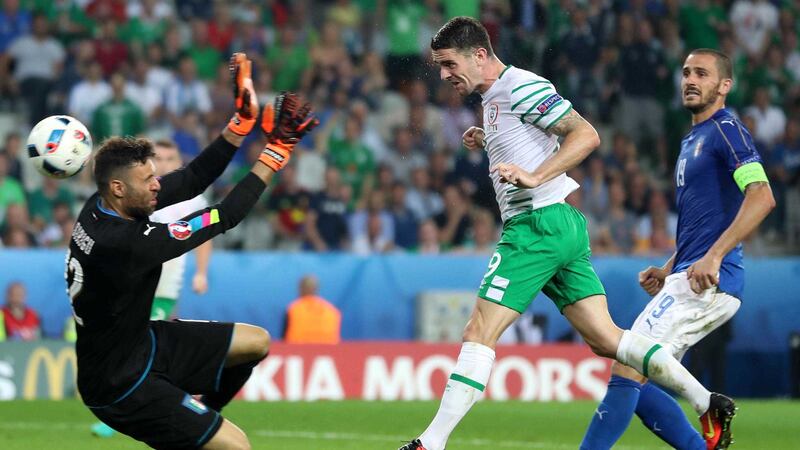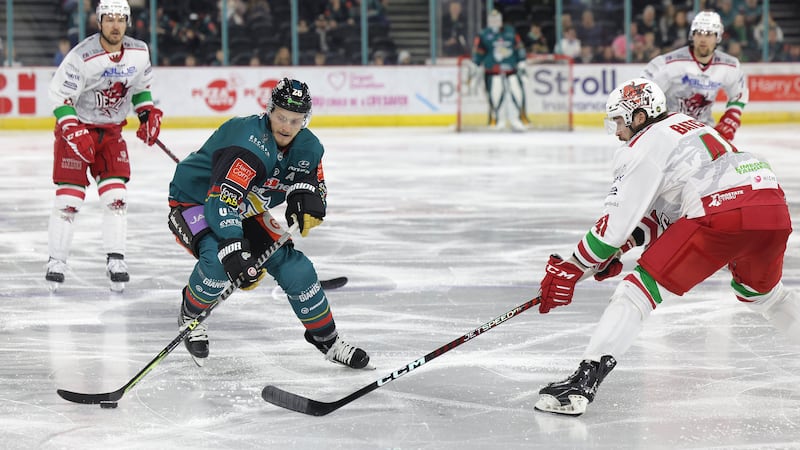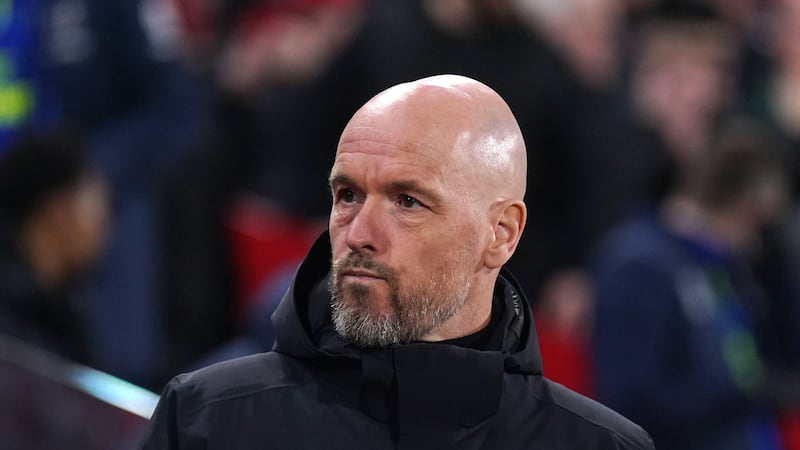IT was 1.40am or thereabouts. It was the weirdest kind of insomnia. You think, did I celebrate Robbie Brady’s winning goal against Italy properly?
Did I jump high enough in my back room?
Could I have punched the air with a bit more gusto than I actually did?
Did I live the moment? Because living the moment is important.
Or did it pass me by? Even in the slightest way?
Should I have hammered the nearest wall to the point of injury?
You can think too much about these things. But I know it was a perfect moment.
I sat with the Sky remote control, rewinding and watching, and re-living, Robbie Brady’s winner in Lille.
Right to where he passed the ball to Aiden McGeady in the middle of the field and then charged tirelessly like Braveheart towards the Italian penalty as if he was late for a meeting with destiny.
But destiny is known to have a compassionate soul. It always waits for the brave.
As the clock ticked deep into Thursday morning, I thought of all the variables, all the things that could have gone wrong.
But they didn’t.
How the ball could have bobbled over Wes Hoolahan’s sumptuous left foot and drifted harmlessly over the sideline.
But it didn’t.
How McGeady could easily have taken the wrong option and not passed to Hoolahan.
But he didn’t.
And how Robbie Brady mightn’t have busted a gut to get into enemy territory to make the difference.
But he did.
And we should thank the high heavens that fate was in generous mood in the north eastern city of France when it offered Hoolahan a second chance, the most wonderful second chance.
Before he flighted the perfect ball from the right side, which evaded Leonardo Bonucci’s untidy leap to find Brady’s forehead, his international epitaph was already being scrawled in tablet stone. Impossible to erase.
How could Wes Hoolahan, of all the clever artisans in this world, fail to roll the ball into Italy’s net two minutes earlier after Bonucci fell down like a bag of spuds on the edge of the area claiming, in vain, that he was fouled?
What rough justice that would have been on the unassuming Dubliner whose skill and wise interpretation of the game has transformed this Republic of Ireland team over the past two years.
There won’t be a better post-match interview between now and the end of time than Robbie Brady’s quivering but perfect words at pitch-side in Lille.
It was the kind of speech that Che Guevara couldn’t have bettered.
There was a purity in Brady’s unscripted words, an unrivalled innocence in their delivery. Playing for Ireland in front of his family was all he had dreamed of...
Spool back to Wednesday, November 18 2009. It’s approaching midnight in Paris. I’m stranded outside the Stade de France in the outer rim of the French capital.
The 80,000 supporters that rocked this wonderful stadium a couple of hours earlier have long since gone.
The trains have stopped for the night and there’s not the distant hint of a taxi in the eerily quiet Saint Denis suburb.
There is no media bus waiting to take me back to my modest lodgings on Rue La Fayette in the centre of Paris.
Earlier, I emailed my 1,500-word report and player ratings for the Republic of Ireland and France teams.
It was the night the Republic of Ireland were broken by Thierry Henry’s handball that allowed William Gallas to score the winning goal and send the French to the 2010 World Cup finals in South Africa.
At this time of the night you feel utterly drained and worn out. By everything.
The lap-top over your shoulder feels twice as heavy as it was entering Stade de France.
Trying to navigate a way from St Denis to Rue La Fayette was the longest walk in journalistic history.
We met a teary-eyed Giovanni Trapattoni in a hastily arranged press conference at Dublin Airport the following day.
We held grimly to the pathetic notion that Fifa would recognise the terrible injustice visited upon the Irish and make room for one more team in South Africa.
It later emerged the FAI would have to make do with a few million euros from Fifa.
Paris ’09 remains an unbearable truth.
On that long walk back into the capital city, I thought of all the other hard times and the so-called luck of the Irish.
I still have the grainy VHS footage of Paul McGrath powering a header against the foot of the Dutch post on that sunny day in Gelsenkirchen in 1988 and the fortuitous backspin Vim Kieft managed to put on his header that evaded Packie Bonner and bobbled into the net.
I remembered Toto Schillaci breaking Irish hearts in Rome at Italia ’90, and disappearing from view for the rest of his career.
I remembered Macedonia. The umpteen play-off heartaches.
And Damien Duff slaloming down the right wing in Suwon like George Best, tying Spanish full-back Juanfran in knots – and then in the dead of night Gaizka Mendieta, with merciless nonchalance, killing the Irish dream from 12 yards.
Yep, the luck of the Irish. Hard times…
After Martin O’Neill and Roy Keane were unveiled as Ireland’s new managerial dream team, they were a bit of a slow-burner.
There was an unmistakable sense of fatalism within Irish ranks.
After all, the Republic crashed and burned at Euro 2012 and the conveyor-belt of talent was reduced to a snail’s pace.
Contrary to his better judgement, O’Neill batted his eyelids at players like Jack Grealish and got nowhere.
Intent on steering the ship in a new direction, the Kilrea man’s greatest feat was making Wes Hoolahan a key player in the Republic of Ireland team.
O’Neill, during one press conference, insisted 34-year-old Hoolahan (left) had been “lightly-raced” during his career and that he could be the difference in big games for Ireland.
It’s true much of the Euro 2016 qualification campaign was a desperate struggle. But O’Neill’s team had established a trait for scoring late goals.
It happened in Georgia. It happened in Germany and at home to Poland. It happened too often to be written off as a coincidence.
O’Neill has practised an evil game of brinksmanship with the Irish fans. He guides them to the cliff edge and shows them what the abyss looks like.
And then the Kilrea man would somehow, almost mystically, pull them back to higher ground.
For 85 minutes, Ireland stared into the abyss in Lille on Wednesday night.
If there was something worse than hell on earth it appeared in the guise of Wes Hoolahan fluffing his lines by kicking the ball meekly into the arms of the Azzurri’s back-up ’keeper Salvatore Sirigu from roughly eight yards out.
But then higher ground appeared out of nowhere and one of the greatest sporting moments in Irish sport was written.
The most satisfying aspect of Wednesday night’s dramatic conclusion between the Republic of Ireland and Italy in Lille was that hard work pays off.
From one to 11, and the subs used by O’Neill, the Republic of Ireland became a glowing parable for the infinite possibilities and rewards for those who work hard; to never give up, to keep going to the end, to keep faith among the faithless and to be braver than your opponent.
The entire night could be broken down into one simple, fateful play: when Robbie Brady met the trajectory of Hoolahan’s cross he was undeterred by the very real prospect of being clattered by Sirigu.
But Brady didn’t blink. Sirigu did.
And the rewards were there for all to see in the emotional celebrations at the end.
It’s hard to guess when the two Irelands – north and south – will ever reach the knock-out stages of the same major championships again.
Michael O’Neill takes his Green and White Army back to Paris for a crack at Wales tomorrow while the legions of Republic fans will colonise the natives in Lyon.
For both sets of supporters, it’s already the best-ever major tournament and somehow conjures up the innocence of Stuttgart and Valencia.
It depends what angle you view their respective knock-out fixtures from: Northern Ireland’s task against the Welsh is significantly less daunting than the Republic’s.
But just as in ’82 for the North, there is something perhaps more prestigious, more memorable in taking on the host nation.
Former Republic defender Richard Dunne, who was blithely comforted by Thierry Henry after his handball in Stade De France in November 2009, perfectly summed up the feeling within Irish ranks during his spot of punditry with ITV.
“We owe them one,” said Dunne, obviously still hurting from the memory of Paris.
Of course, the host nation are massive favourites to overcome the Republic in Lyon on Sunday afternoon. The Irish are rated 10/1 in some bookmakers.
While French manager Didier Deschamps has an embarrassment of riches to choose from, he’s like a tradesman who doesn’t know how best to use his tools.
You should always be suspicious of a manager who struggles to accommodate players such as Paul Pogba in his line-ups on a consistent basis.
So the Republic don’t go to Lyon without hope. Indeed, there is a lesson in how the brave-hearted Albanians – desperately unlucky not to qualify for the last 16 – approached their group game with the hosts in Marseilles last week, only to lose out in stoppage-time.
The Group A minnows came with high energy, a superbly drilled defence and, crucially, ball retainers in the middle of the field.
Albania stayed in the game for roughly 90 minutes by keeping the ball.
The Belgian performance aside, the Irish players have shown against the Swedes and the Italians that they can keep the ball to good effect.
They must trust themselves to give the short pass when it’s available rather than lumping the ball as far away as possible from their own goal.
Martin O’Neill’s side have grown considerably since their opening match with Sweden just 11 days ago. We live in hope.
But, no matter what happens in Lyon on Sunday afternoon, we will always have Lille...









